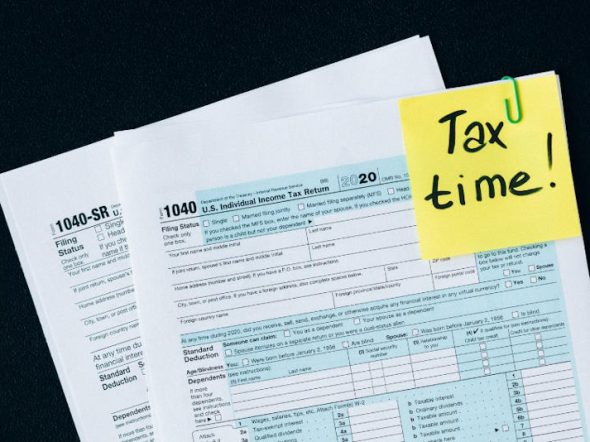The old saying goes, "In this world, nothing is certain except death and taxes." While taxes are an inescapable reality, few take the time to truly understand how they can manage and reduce their tax liabilities. This lack of knowledge isn't just inconvenient, it can also be costly.
Grasping your tax responsibilities isn’t just about paying your dues to the government, it's also about ensuring you don't end up paying more than you should. Without a solid understanding of tax rules, regulations, and opportunities for deductions or credits, you could end up with a larger tax bill than necessary, missing out on chances to save.
Moreover, not filing or paying your taxes correctly, whether due to misunderstanding or mismanagement, can result in significant fines and penalties. As per the guidelines of the IRS, you'll be subjected to a minimum penalty of $435 or the total tax owed, whichever is less, if your tax return is submitted over 60 days past its due date. This means that you could potentially be paying hundreds of dollars in penalties, all because of a delay in filing. In severe cases, individuals might even face criminal charges, such as tax evasion or fraud, leading to even higher penalties or even imprisonment.
Given these potential pitfalls, it's clear why understanding the nuances of taxation is crucial. In this post, we’ll go over four legal ways to save on your taxes.
Hire a Local Personal Tax Accountant
The journey of legally saving on your taxes begins with a key step—hiring a local personal tax accountant. A personal tax accountant is a certified professional steeped in tax law and experienced in navigating the intricate maze of taxation. Employing their expertise, they ensure all possible deductions applicable to your situation are identified and utilized, keeping you in tune with any changes in tax laws.
You might wonder, "Why a local tax accountant?" Therein lies the subtlety. For instance, if you reside in New York City, hiring the best personal tax accountant NYC has to offer, has its distinct advantages. They're familiar not just with federal tax laws but also with local and state-specific tax rules, which can be immensely beneficial considering the complexities of NYC tax codes. This knowledge can have a significant impact on your overall tax savings.
While hiring a personal tax accountant does have an initial cost, the savings they can help you secure often surpass this expense. The significant amount you could potentially save on taxes, along with their tailored advice to your unique financial situation, typically pays for their service many times over. Therefore, a local personal tax accountant is not only a wise choice but a strategic investment in your financial well-being.
Make Use of Tax Deductible Expenses
Next, let's delve into tax-deductible expenses. These are costs that can be subtracted from your adjusted gross income, reducing your taxable income, and by extension, your tax liability. Examples abound from mortgage to student loan interests to medical and dental expenses.
But remember, the key to claiming these deductions is to maintain meticulous records of these expenses. While it may seem tedious, this practice could end up saving you a hefty sum when tax season rolls around.
Take Advantage of Tax Credits
Powerful tools in the tax-saving arsenal are tax credits. Unlike tax deductions which reduce your taxable income, tax credits directly decrease your tax bill, dollar for dollar. Some common tax credits include the child tax credit (CTC), education credits, and the earned income tax credit (EITC).
The specifics of qualifying for these credits vary, but they often provide substantial relief for those who can claim them. Make sure you research each credit's eligibility requirements or consult your personal tax accountant to ensure you're not missing out on any potential savings.
Consider Tax-Efficient Investments
Tax-efficient investing is another method to reduce your tax bill. Tax-efficient investing is about structuring your investments in a way that allows you to keep more of your returns by minimizing the taxes you pay. For instance, holding onto investments longer enables you to benefit from lower long-term capital gains rates.
Also, tax-loss harvesting can offset the taxes on gains and income. Certain investment products are also inherently more tax-efficient, like index funds and ETFs, due to their unique structure. Understanding these strategies and products could make a substantial difference in the after-tax return of your portfolio.

Final Thoughts
While there are myriad legal ways to save on taxes, remember that each person's financial situation is unique, so it's essential to tailor these strategies to your circumstances.
In addition, while being tax-savvy is commendable, it's equally important to ensure all your tax-saving strategies are legal and ethical. After all, paying taxes is our responsibility as citizens, and we should strive to do so in a manner that doesn't compromise our integrity.
